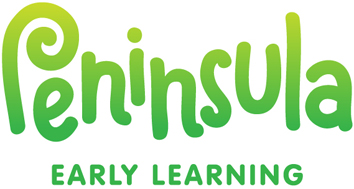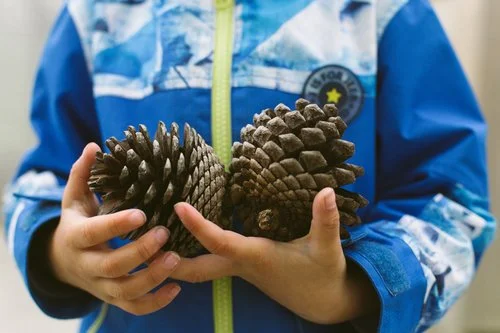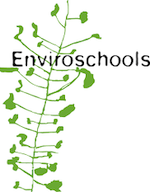For preschoolers, play is learning. And there’s no better play resource than nature. Frequent, positive early childhood experiences with nature have a major impact on the growth of a child’s mind, body and spirit.
The natural world is alive, always changing and unconstrained, providing serendipitous encounters for young learners at every turn. It is these surprises and discoveries that allow children to use curiosity, creativity, risk-taking, persistence and resilience to grow their problem-solving, scientific and mathematical, language and early literacy skills.
Conservation values and lifelong relationships with nature are established during childhood, so empathy with, and love for, nature grows from these regular experiences.
A sense of place and wonder
For our preschool-aged children, the focus of nature-based education is on encouraging children to explore and experience nature in local, familiar environments. Creative, spontaneous and unrestricted play at local parks, reserves, beaches, gardens and traditional play environments develop both a sense of place and wonder. Children are able to discover, explore and make sense of the environment that surrounds them in their daily lives.
Peninsula Early Learning is located on the beautiful Miramar Peninsula (Te Motu Kairangi). Extensive areas of regenerating native bush, pine forest, farmlands, urban gardens, rocky coastlines, sweeping sandy beaches, pinnacles and caves form our ‘playground.’ According to Māori legend, Te Motu Kairangi was formed when the taniwha Whaitaitai beached as he tried to escape the confines of the harbour. Steeped in history, many of the peninsula’s walkways and reserves are positioned on and around military fortification sites and a Maori pā. The Peninsula’s history and legends help our tamariki connect to the land and develop a sense of place.
Potential and possibility
While adults perceive nature as what’s physically around them, - trees, green, landscapes etc - children see ‘potential’ and ‘possibility.’ They use all their senses and learn to be present. To stop, listen, look around. They pick things up, turn them over, run their fingers over them, discover what’s underneath, count them, put them up to their ears, smell them, taste them. And while they’re exploring, they’re asking questions and working together to figure out the answers, as well as telling stories about what they’re doing. An explosion of science, maths and language development comes from this.
“I’ve never met a child who was not interested in nature… I mean just the simplest thing, a 5-year-old turning over a stone and seeing a slug, you know, and says, ‘What a treasure!’ You know, ‘Well how does it live and what are those things on the front?’ Kids love it. Kids understand the natural world…” — Sir David Attenborough
Expending energy
The outdoors also gives children an opportunity to expend energy. If you put a child that’s having a hard time in a classroom outdoors, it can change everything. It can develop their self-confidence without squashing their energy and spirit. In turn, this improves focus, motivation and enthusiasm to learn when it comes to classrooms and other traditional learning environments.
We all have a role to play in inspiring and encouraging future generations to play in nature. At Peninsula Early Learning, we want to see nature become a normal part of every child’s life so they can develop into healthy, resilient adults. Our tamariki get out into nature as much as possible. Learning in nature provides children with so many opportunities to challenge themselves physically, risk-assess situations and discover more about the world around them while they are exploring. As well as enjoying time in our incredible outdoor play space and garden, we take small groups on nature walks once a week, where they spend most of the day in nature on the Miramar Peninsula. Every child at our preschool experiences a trip into nature or takes part in a nature-based experience at least once a week.
Nature learning can continue at home, on the weekends and during the holidays. Start by exploring your backyard. Children are naturally drawn to the natural world and adults showing the same curiosity, awe and investigative skills into the world around us will inspire children to follow!
“If we want children to flourish, to become truly empowered, let us allow them to love the earth before we ask them to save it” – David Sobel





